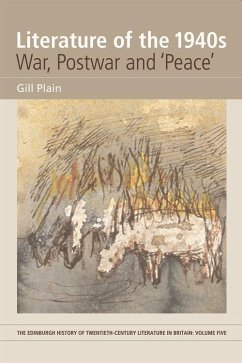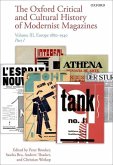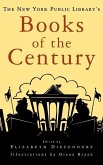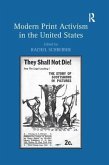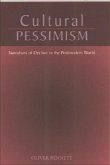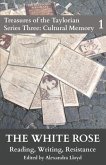Edinburgh History of Twentieth-Century Literature in Britain General Editor: Randall Stevenson Each of the volumes in this series analyses the literary developments of a single decade in their widest contexts. Literature of the 1940s: War, Postwar and 'Peace' Gill Plain 'Gill Plain is a passionate, omnivorous and discerning reader, with strong instincts for what matters and sharp insights into its significance. In this rich and innovative study, she attends to verse dramas and domestic thrillers, forgotten authors and big names alike in order to redress the neglect of an explosive, melancholy and jagged decade.' Marina Warner, University of Essex 'It's hard to imagine a better guide to the literary world of the 1940s than Gill Plain's lucid, witty, and engaging volume. This is a book destined to send readers to the library to discover and re-discover the impressive array of texts discussed. It sheds brilliant light on how writers bore witness to the traumas and upheavals of the entire decade.' Susan R. Grayzel, University of Mississippi A groundbreaking re-reading of the literary response to a decade of trauma and transformation This new study undoes the customary division of the 1940s into the Second World War and after. Instead, it focuses on the thematic preoccupations that emerged from writers' immersion in and resistance to the conflict. Through seven chapters - Documenting, Desiring, Killing, Escaping, Grieving, Adjusting and Atomising - the book sets middlebrow and popular writers alongside residual modernists and new voices to reconstruct the literary landscape of the period. Detailed case studies of fiction, drama and poetry provide fresh critical perspectives on writers as diverse as Margery Allingham, Alexander Baron, Elizabeth Bowen, Keith Douglas, Henry Green, Graham Greene, Georgette Heyer, Alun Lewis, Nancy Mitford, George Orwell, Mervyn Peake, J. B. Priestley, Terence Rattigan, Mary Renault, Stevie Smith, Dylan Thomas and Evelyn Waugh. Gill Plain is Professor of English Literature and Popular Culture at the University of St Andrews. Cover image: Burning Cows, detail from Eighteen Ideas for War Drawings, 1940. Reproduced by permission of The Henry Moore Foundation. Cover design: [EUP logo] www.euppublishing.com
Hinweis: Dieser Artikel kann nur an eine deutsche Lieferadresse ausgeliefert werden.
Hinweis: Dieser Artikel kann nur an eine deutsche Lieferadresse ausgeliefert werden.

